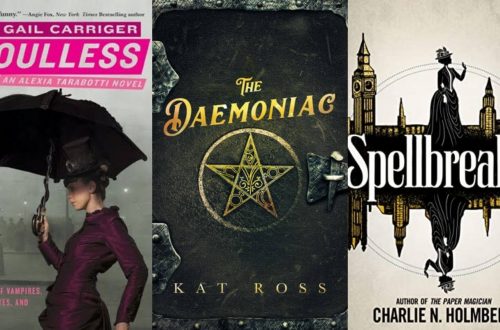Writing is scary.
When I first started writing I spent a lot of time world building, outlining, or making pretty character aesthetics – anything but actual writing. I couldn’t get over this fear of writing because I worried that I wasn’t good enough to write, or that it’ll be a waste of time and no one will read it. I’m speaking of myself here, but let me know if you relate, as I think a lot of new writers struggle with the same problem. When I opened up a Word document for the first time, that blank screen which stared back became a reflection of my inner most insecurities. I agonised over that first line. That first paragraph. That first page. When I managed to squeeze out an entire chapter, I’d stare at it and decide it was the most awful, clunkiest piece of writing the world would ever see. Except they wouldn’t see it. Because I’d delete it.
Years ago I struggled with anxiety and depression, which I’m sure many writers have also experienced at one point or another. I saw a counsellor, then a psychologist, and eventually a psychiatrist and went on a whole journey for better mental health. That’s a different story, but one thing I learned is that I am a perfectionist.
What Does Being a Perfectionist Mean?
Being a perfectionist didn’t mean my life was great and that I was a high achiever. Being a perfectionist meant that nothing was ever good enough for me. It meant I had to work to the best of my ability at all times because I was scared that people would judge my work as mediocre. There was no room for growth or failure. That need to reach perfection meant that I became paralysed with fear; what if my best wasn’t good enough?
It my work wasn’t my best, then what was the point in trying?
As writers, we can be our own worst critic. We judge ourselves and our writing harshly, perhaps more than we’d judge our friends. When it comes down to writing, that fear of not being good enough, of not being perfect enough, can stop us from putting pen to paper. We’re so worried about committing this unforgivable sin that we sometimes give up on our dreams altogether. For me, I always said I had an interest in writing, that I loved writing and wanted to write a book. I said this for years. I wrote down my ideas, I created a whole world, but it took me literal months to get those first few words down because I was so paranoid about not being good enough.
What if people said my writing was terrible?
What if my writing is terrible?
For someone with anxiety, it does take guts to bare your soul. It’s even scarier to show your work to other people. I got over this first hurdle by convincing myself that I was writing for myself and no one would see it. There is something cathartic to just writing your inner most desires.
So I wrote. I took part in National Novel Writing Month which encourages you to write 50,000 words in a single month. Nothing throws you in the deep end quite like NaNoWriMo, and it forced me to just vomit the words out to reach a target of 1666-ish words a day. So I did. I vomited some words, and then some more, and before I knew it I didn’t care if they were perfect or not, I just wrote them down and kept pressing onward. It was hard, because as a perfectionist, I got better ideas on how to write a scene and kept going back to re-write them before I could move onto the next scene. I broke the no-editing rules by re-writing the previous chapter before moving onto the next one. This acted as a warm-up so it worked for me and helped calm my inner editor.
I successfully completed my first NaNoWriMo at 70,000 words and kept writing. Actually creating a story ignited my love for writing like nothing else and I enjoyed the rush. Nothing teaches you how to write a novel except actually writing a novel. I learned so much from the experience, but even then I was adamant the book didn’t need editing, almost as if I was scared to admit it wasn’t perfect and admitting my book needed re-writing or editing would be confessing my failure as a writer.
It took another few years to re-write the story that eventually became Sand Dancer, and that’s available for you to buy and read now! I managed to overcome my perfectionism and write a whole book. Technically two whole books, since I’m now re-writing a draft of the sequel. So what helped me and how can it help you?
Defeating Perfectionism
First off, my counsellor recommended a book to me: When Perfect Isn’t Good Enough: Strategies for Coping with Perfectionism by Martin M. Antony. I still have a physical copy on my shelf. This book uses Cognitive Behavioural Therapy techniques to help challenge your own insecurities and argue with that inner voice that states you’re not good enough. It teaches you how to recognise negative thoughts, such as all-or-nothing thinking (If this book isn’t perfect it’ll never get published) and how to challenge such thoughts (If this book isn’t perfect I can revise it and ask beta readers to give me feedback. This book may not get me published, but I can write others that may.)
Part of challenging negative thoughts is being kind to yourself. Often we focus on the negatives without looking at the positive things we’ve also contributed. If you’ve written a story that you think is awful, then congratulations! You’ve written a story. Doesn’t matter how big or small, you’ve written a whole story.
Take Your Time
It takes time to write a book. It can be frustrating and maddingly slow, but there’s no shortcuts when it comes to learning a creative skill, whether that’s art or music or writing. You might think writing is easier since we all write in our daily lives, but writing a novel is a different skill from sending an email or posting in Facebook.
If writing a book seems overwhelming, then break it down into smaller parts, such as scenes or chapters, and do a part at a time. Don’t rush it and you’ll get there. We all work at our own pace and you’re not a failure just because someone else reaches the goalpost ahead of you. They’ll always be people ahead of you and behind you. There are no shortcuts to writing and rushing will just stress you out and annoy your inner perfectionist.
Take your time.
When I first started writing seriously, I took part in a weekly writing competition where the aim was to write 750 words or fewer to a specific prompt. My first entry wasn’t great. Neither was my second. I kept writing them and challenging myself to win. I was overjoyed when I placed in the top three, but annoyed that I was stuck in second place and never won. Still, I kept writing new stories and allowed myself to experiment with ideas. That weekly writing competition taught me how to write a whole story to a tight word count, how to edit down my story to be more concise, and how to finish the story to a deadline. Basically, the more I wrote, the more practice I gained writing, and by reading and writing a lot I naturally improved.
And then I won first place.
When I look back at my first draft of Sand Dancer I can see where the problems are and what needs editing. That’s a skill which I have learned through practice – by writing a book and then re-writing it and gaining valuable feedback from beta readers. Only by going through this process myself did I learn it. I don’t have a degree in writing. I figured out most of this stuff via the simple journey of writing a book. No one starts out as an expert writer!
Embrace Bad Writing
The problem with perfectionism is that fear of being a terrible writer. I worried that my writing was terrible, my stories were terrible, that I didn’t know what I was doing, and I had to get it perfect first time.
Want to know a secret?
My writing was terrible.
But I didn’t need to get it perfect first time.
Embrace bad writing. Embrace typos and awful clunky text. Give yourself permission to write a sloppy first draft. Give yourself permission to be a bad writer. Your writing doesn’t have to be perfect, it just has to exist. You can’t edit a blank page!
When I’m having a bad writing day where everything I write feels terrible, I give myself permission to be terrible because it doesn’t matter. These words can be re-written later. Maybe my brain isn’t able to focus on this particular scene and I’ll put some placeholder text in so I can come back to it later and move onto something more enjoyable. Often times I’ll come back and read my “terrible” writing only to see it wasn’t as bad as I thought. I was being mean to myself.
Being bad at something is the first step to becoming good at something.
Writing is Re-Writing
I hate to say it, but writing is re-writing. Unless you’re Stephen King and have pumped out numerous novels, you’re not going to be able to produce the perfect first draft. Embrace the idea that whatever you write can be played with and shaped into something else. If you decide you want to become a published author, then chances are your agent or publisher will suggest changes anyway, so it’s best to embrace the idea that your writing can be polished and tweaked and changed. They don’t do this to change your idea or your vision of the story – it’s to make your story or vision stand out.
In any creative endeavour, we learn best through experimenting and playing around. We learn from our failures and bad writing because we can gain feedback and improve. For me, writing is an iterative process where I write a scene, leave it, read through it, and get ideas for how I can make it better. So I write it again. Then I tweak and polish sentences. The final version might not look anything like what I first wrote down because often when I write I don’t actually know what I’m trying to write, or what I want to write, until after I’ve written it. And then once I understand what it is I’m trying to say I can write it out again.
It’s a bit like creating a marble statue. Artists start out with a block of stone. Maybe they had an idea of what they’re going to make. Maybe they’ll figure it out as they go along. But they chip away at it into a shape and once their design has become apparent, they can polish it into the final product.
But unlike my statue analogy, nothing you write is set in stone. If you write terrible words it doesn’t mean these words are going to be tattooed to your face for the entire world to see. It means you can change them. Re-write them.
Honestly, what clicked for me was seeing writing as something which can be played with and experimented with for fun, rather than as some torturous pain where editing is some unearthly punishment for your bad writing sins. Writing is fun. Have fun being a writer!
Just Do It
Stop worrying and just write.
Stop thinking about writing and just write.
Stop agonising over which words to use and just write.
Just stop.
Breathe.
And write some words down.
Does that feel better?




